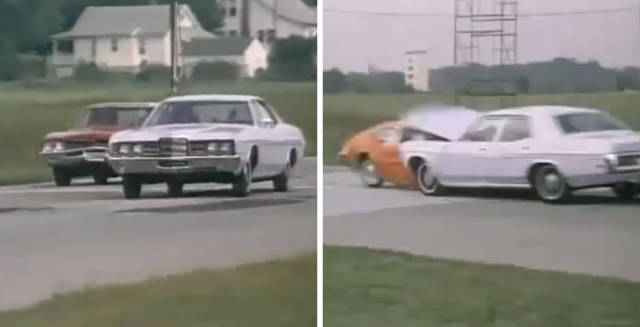Car Crash Experiment

The 1974 Car Crash Experiment by Loftus and Palmer aimed to prove that wording questions a certain way could influence a participant’s recall, by twisting their memories of a specific event.
They asked people to estimate the speed of motor vehicles using different forms of questions. Estimating vehicle speed is something people are generally poor at and so they may be more open to suggestion.
The participants watched slides of a car accident and were asked to describe what had happened as if they were eyewitnesses to the scene. The participants were put into two groups and each group was asked a question about speed using different verbs to describe the impact, for example, “how fast was the car going when it smashed/collided/bumped/hit/contacted the other car?”
The results show that the verb conveyed an impression of the speed the car was travelling and this altered the participants' perceptions. Participants who were asked the “smashed” question thought the cars were going faster than those who were asked the “hit” question. The participants in the “smashed” condition reported the highest speed estimate (40.8 mph), followed by “collided” (39.3 mph), “bumped” (38.1 mph), “hit” (34 mph), and “contacted” (31.8 mph) in descending order. In other words, eyewitness testimony might be biased by the way questions are asked after a crime is committed.